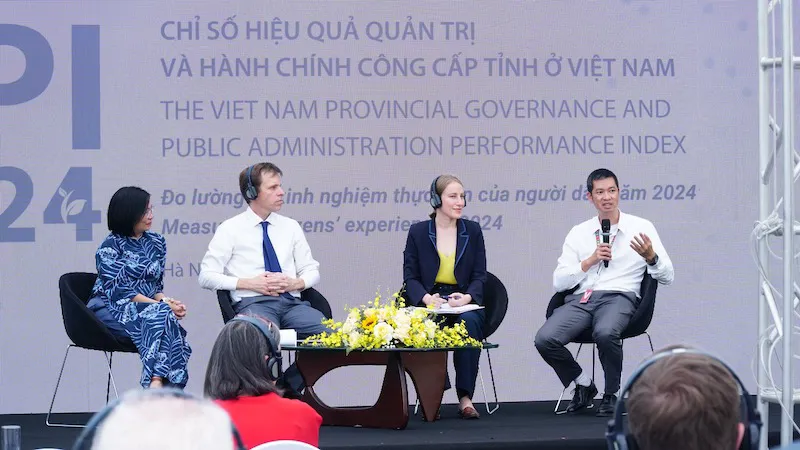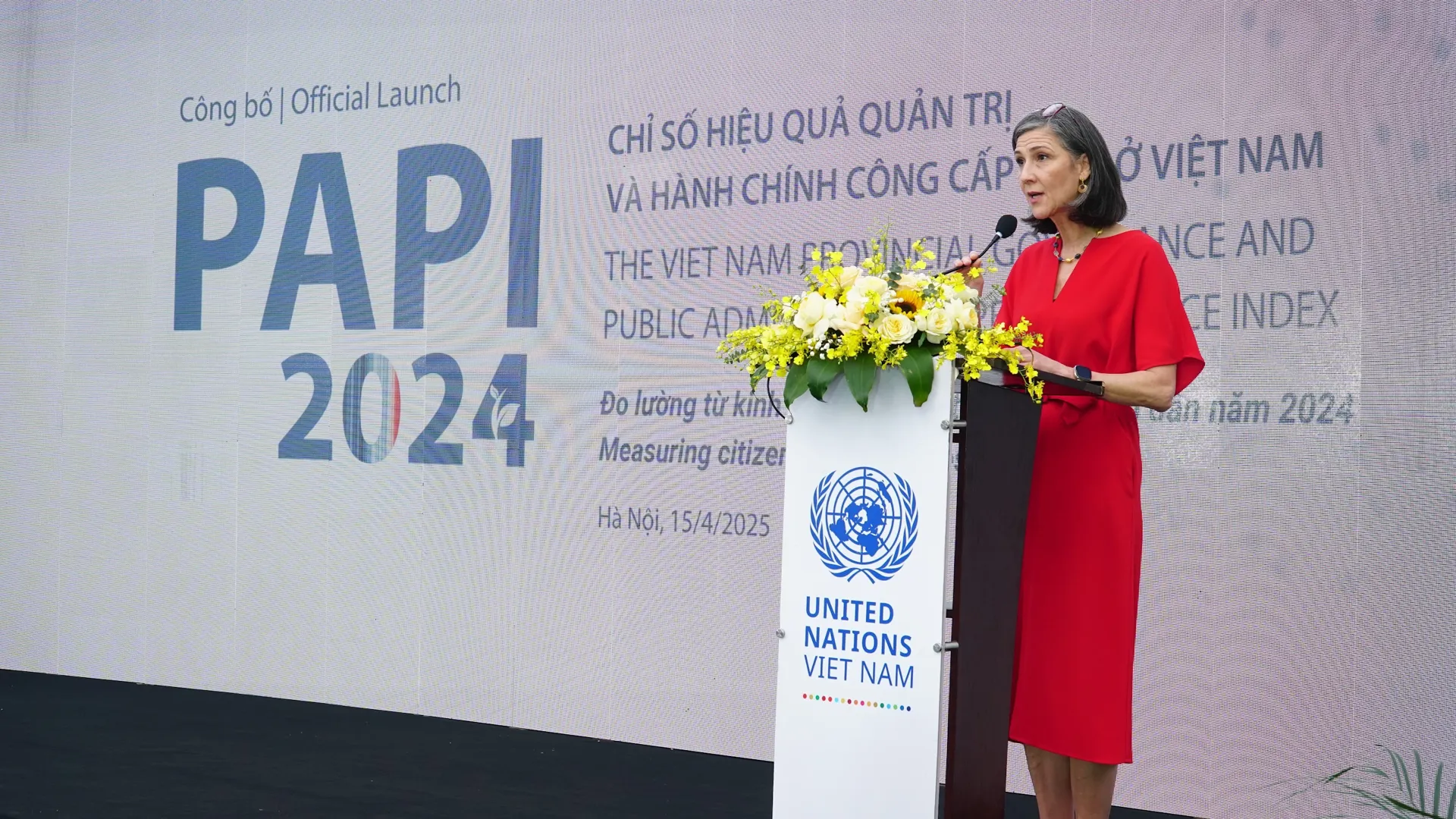Vietnamese public shows rising satisfaction in 2024 PAPI survey
The 2024 PAPI survey found increasing citizen satisfaction with governance, but highlighted persistent administrative challenges, climate vulnerability, and gaps in access to public services.
THE HANOI TIMES — Vietnamese citizens are more satisfied with government performance in seven out of eight key areas measured by the 2024 Provincial Governance and Public Administration Performance Index (PAPI), according to findings released on April 15.
Now in its 16th year, the survey captured feedback from nearly 18,900 randomly selected residents across the country.
There were notable improvements in transparency of local decision-making, control of public sector corruption, environmental management, and e-governance. There were also positive changes in grassroots participation, government accountability, and public service delivery.
However, administrative procedures remained largely stagnant, highlighting an ongoing bottleneck in Vietnam's public administration reform efforts.

The PAPI research team discusses the 2024 PAPI findings. Photos: UNDP Vietnam
The report found that three dimensions of governance received relatively high ratings from citizens, including the control of corruption in the public sector, access to administrative services, and the quality of public service delivery.
While public demand for stronger anti-corruption measures remains high, perceptions of local efforts in this area were more cautious. The number of people who reported paying informal fees or bribes to access administrative or public services decreased from 2023.
The 2024 PAPI report called on government agencies to increase transparency in service delivery, effectively enforce legal compliance, and strengthen whistleblower protections. These recommendations come at a crucial time as Vietnam continues to restructure its administrative apparatus.
From an economic perspective, the share of respondents rating their household's financial situation as poor or very poor fell to 10.2% in 2024, the lowest level since 2019.
Employment was the second most mentioned concern, reported by 12.6% of participants. In addition, 40% of respondents reported that their household or community had been directly affected by extreme weather in the past year, highlighting the growing climate-related risks to local economies.
Despite overall improvements, the PAPI report reveals persistent disparities in citizen satisfaction across demographic groups and regions. Women, ethnic minorities, migrants, and residents of rural or remote areas consistently report lower levels of satisfaction with local governance and public services. These findings highlight the need for more inclusive governance strategies.
At the launch event, Duong Trung Y, Vice President of the Ho Chi Minh National Academy of Politics, said the survey provides valuable data to help policymakers evaluate government performance and improve public service quality.
“The 2024 PAPI findings underscore the urgent need and opportunity to advance gender equity, social inclusion, and equitable access to public services through the ongoing governance reforms,” said Ramla Khalidi, UNDP Resident Representative in Vietnam.
They offer an evidence-based roadmap for improving citizen-centric governance and ensuring that ongoing and upcoming institutional reforms translate into tangible benefits for all Vietnamese citizens.

Ramla Khalidi, UNDP Resident Representative in Vietnam, speaks at the launch of the 2024 PAPI.
Hanoi maintains digital leadership
In terms of provincial performance, Hanoi ranked 29th out of 63 provinces and cities with a score of 43.7. This marks a decline of 14 positions from 2023 and a drop of 0.18 points.
Despite the setback, Hanoi remained in Group 2, the medium-high performance tier, which meets the city’s governance target for the current term. In 2020, the capital ranked 48th and was classified in the low-performing group.
Hanoi made progress in accountability and maintained its national lead in e-governance. However, the city fell in other areas, including grassroots participation, administrative procedures, and public service delivery.
In 2023, Hanoi led all subnational cities with a PAPI score of 43.9. In this year's index, the capital ranks second among centrally governed cities, behind the central city of Hue, which appeared on the list for the first time at 11th place.
Ho Chi Minh City came 40th, the northern city of Haiphong 41st, the central coastal city of Danang 45th, and the Mekong Delta city of Cantho 59th.
|
The PAPI is a policy monitoring tool that assesses citizen experiences and satisfaction with government performance at the national and sub-national levels in governance, public administration, and public service delivery. After an initial pilot in 2009 and a larger survey in 2010, the PAPI has been conducted annually nationwide since 2011. In total, nearly 216,700 Vietnamese citizens nationwide have been directly interviewed for PAPI since 2009. PAPI measures eight dimensions: Participation at Local Levels, Transparency in Local Decision-making, Vertical Accountability Towards Citizens, Control of Corruption in the Public Sector, Public Administrative Procedures, Public Service Delivery, Environmental Governance and E-Government. PAPI is the result of a collaboration between the Center for Community Support and Development Studies (CECODES), Real-Time Analytics, and UNDP, with field coordination support from the central agencies of the Vietnam Fatherland Front and its provincial to grassroots branches since 2009. During its 16 years of existence, PAPI has been funded by the Government of Spain from 2009 to 2010, the Swiss Agency for Development and Cooperation (SDC) from 2011 to 2017, the Australian Department of Foreign Affairs and Trade (DFAT) from 2018 to June 2026, the Embassy of Ireland from 2018 to 2025, and the United Nations and UNDP in Vietnam since 2009. |











